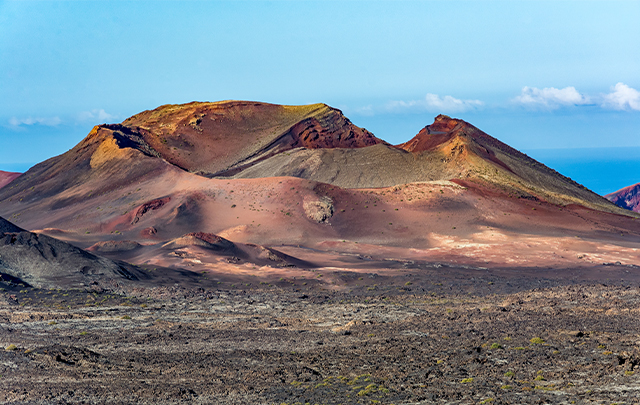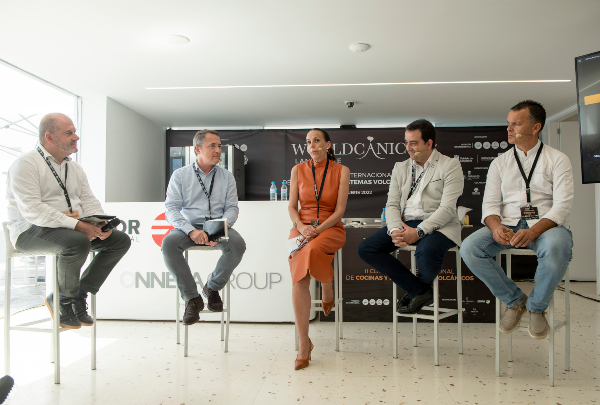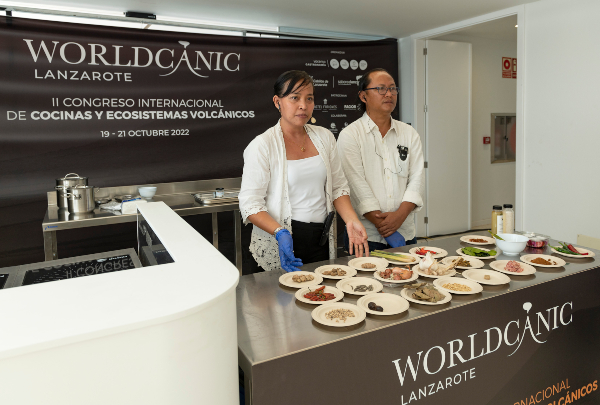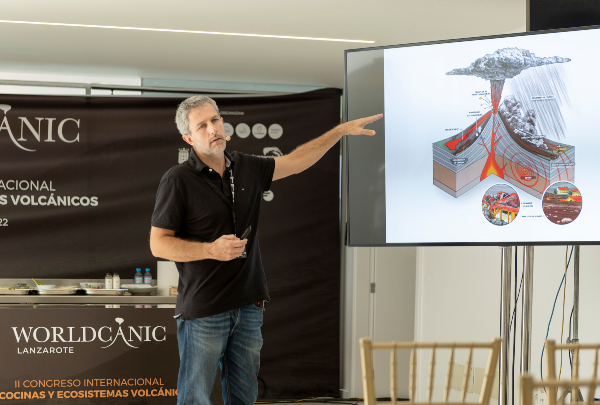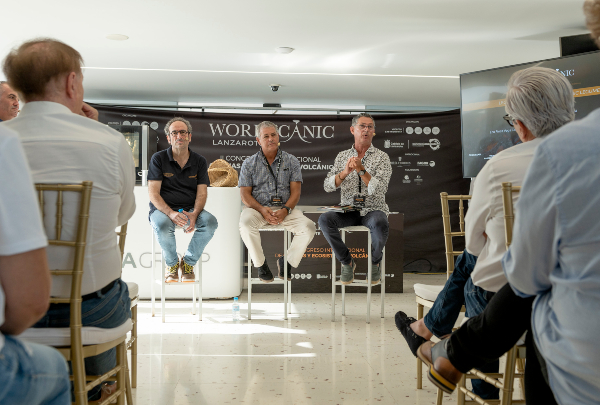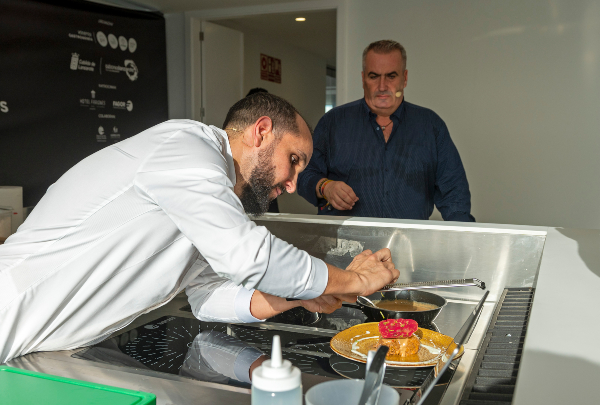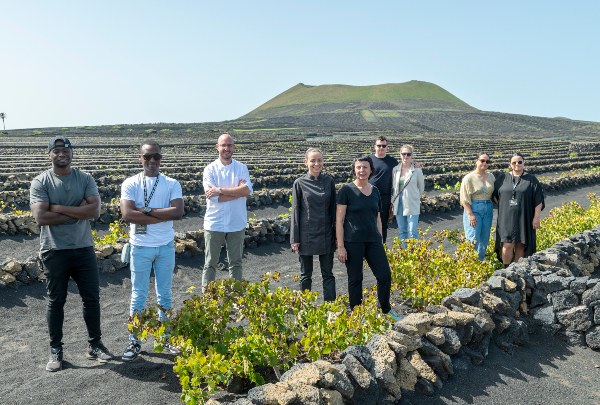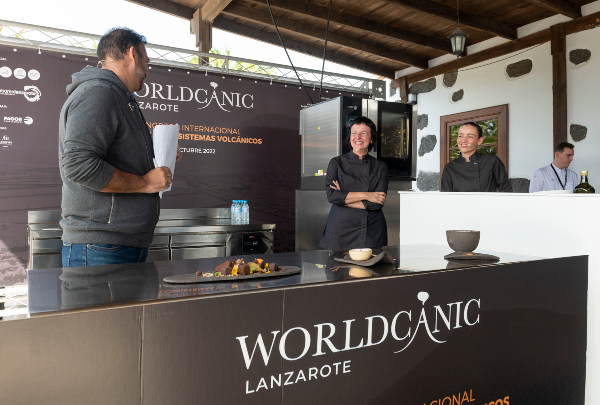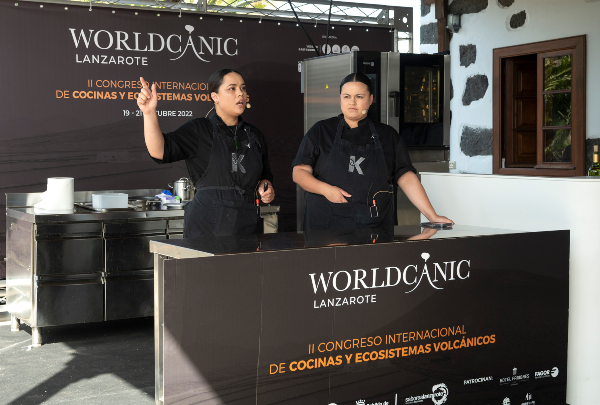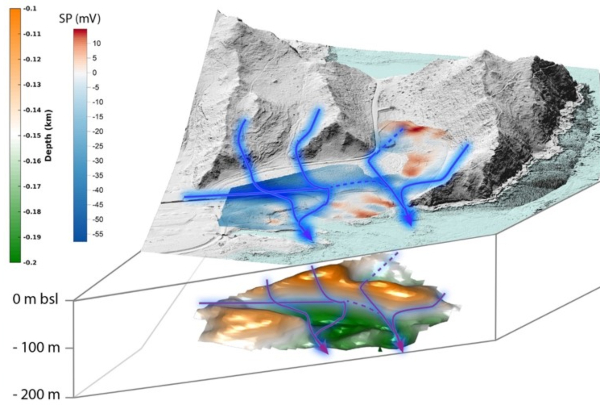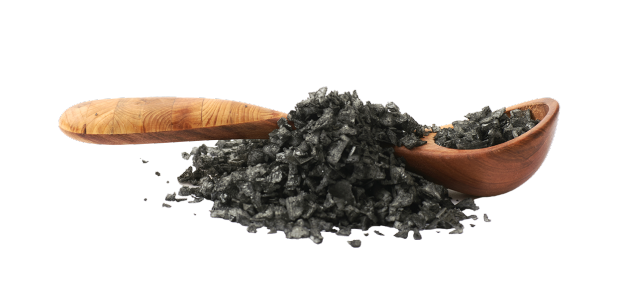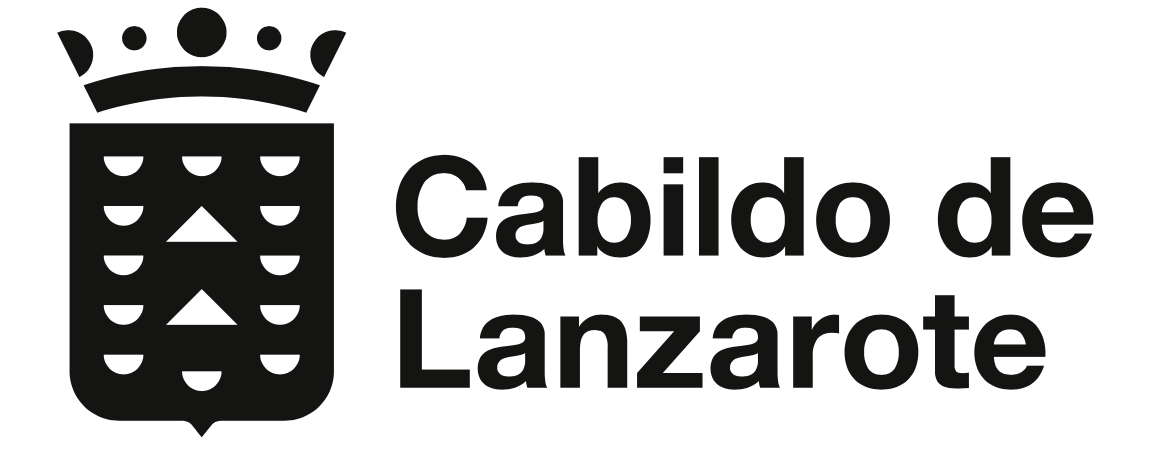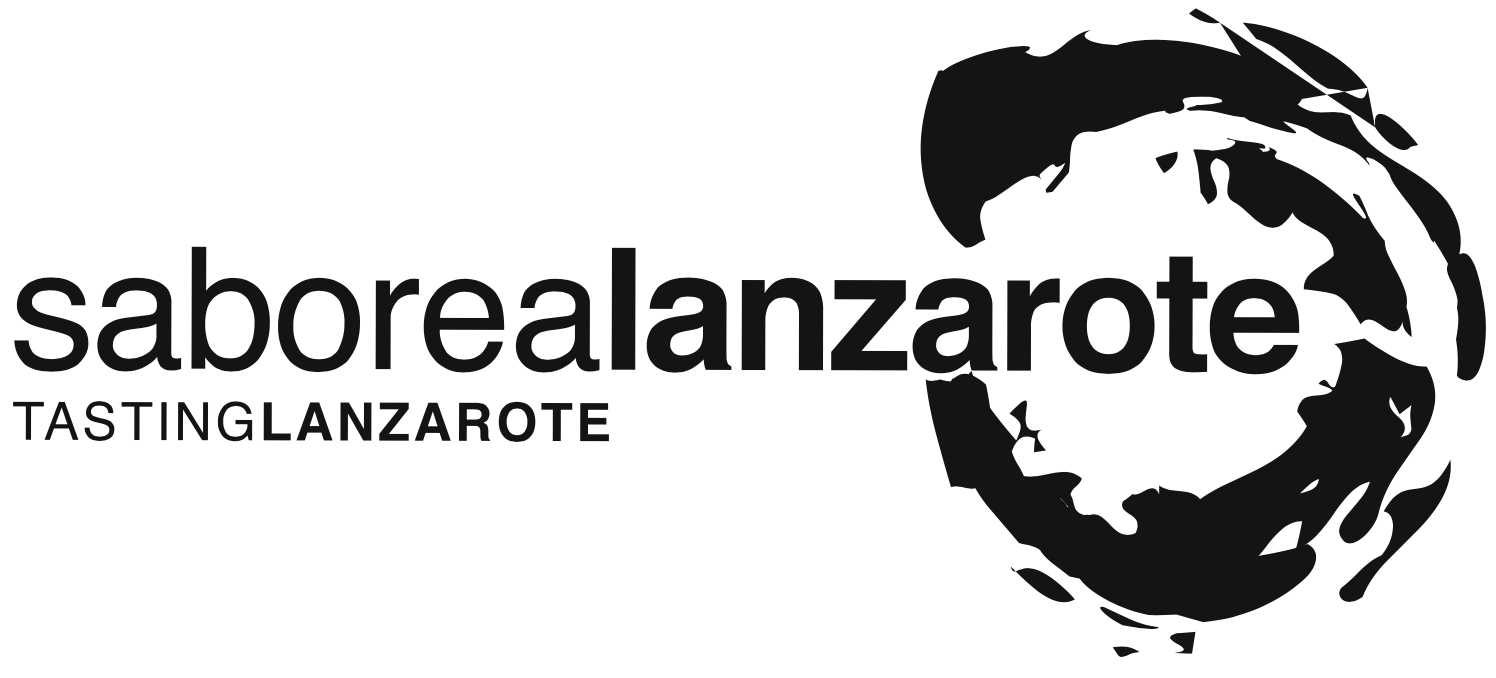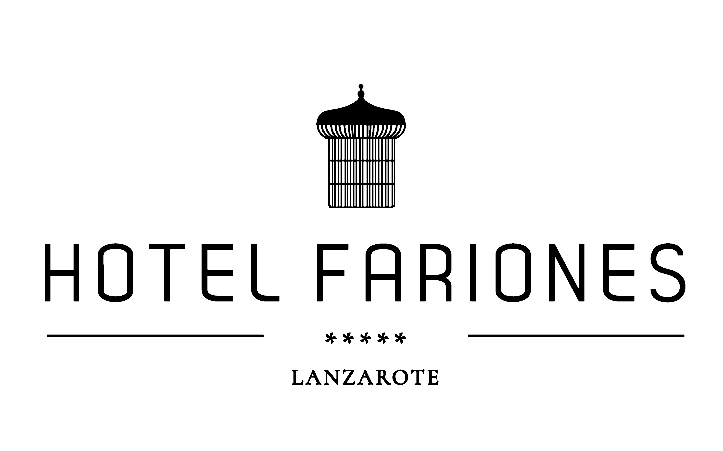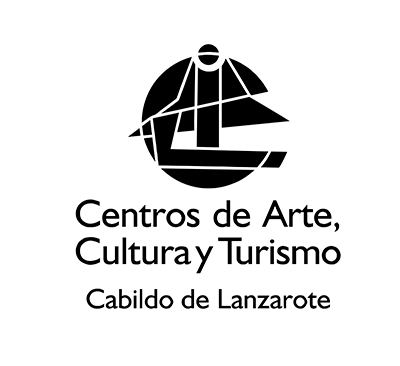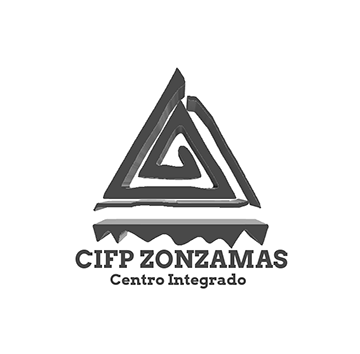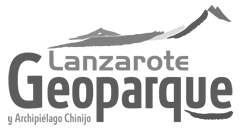News
Worldcanic ends with a message of hope for the volcanic world
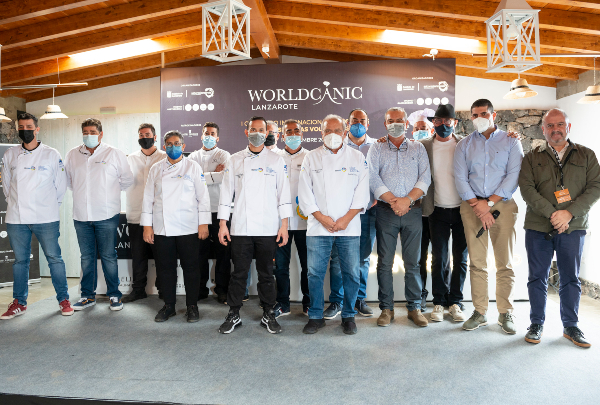
The first International Congress on Cookery and Volcanic Ecosystems, organised by Vocento's gastronomy division and Lanzarote's "Cabildo" government, brought around 70 people to the Canary Island, composed of scientists, producers, chefs and journalists, in a 3-day event.
“We're all thinking about the next one already. And when that happens, it means things have gone well", said the head of Vocento's gastronomy division, Benjamín Lana, in his closing speech at Worldcanic Lanzarote 2021. This was the fullstop after three days of an encounter considered "very important, because dialogue among different disciplines is vital for the future", explained the chef who runs a restaurant in Manila, Chele González. Because that was the point, to share and grow with knowledge of volcanic environments in order to, among other goals, "mitigate the adverse consequences of volcanoes". Anne Fornier, founder of the Volcano Active Foundation, was delighted at the end of the congress "because this congress has worked along the lines of cooperation laid down by the UN: Cooperation saves lives”.
The first International Congress on Cookery and Volcanic Ecosystems, organised by Vocento's gastronomy division and Lanzarote's "Cabildo" government, brought around 70 people to the Canary Island, composed of scientists, producers, chefs and journalists, in a 3-day event with a total of 20 talks and round tables at 4 extraordinary locations on the island (among which, the amazing talks auditorium in Jameos del Agua or the room with a view of Mirador del Río), along with 6 gastronomic experiences at 6 restaurants (including El Diablo, the only restaurant on the island that cooks directly with volcanic lava). The event involved 25 genuine Lanzarote chefs, and also guest chefs from various volcanic regions around the world, who came together for a unique cooking experience. "Contact between professionals is nutritional", reiterated geologist Joan Martí. That was the objective.
Contact, communion and messages of resilience and preliminary work to mitigate effects and empower the population as protection against eruptions, continued on Friday with the last five talks at the Vegacosta Eco-estate in Tinajo. The man in charge there, Toño Morales, kicked off the day with a guided tour of the 120,000 m2 facility, which works with crops on ash because "not only does this give out flavour, but it doesn't have to be renewed. We just turn it a little, and that's that. It's our treasure”, he said.
“Right now we have to hang in there, but the volcano will bring wealth in the medium term”
It was time to turn to the situation of La Palma. At a congress on volcanoes, and in the Canary Islands too, there had to be a talk about the situation of the neighbouring island, on the current situation of the volcano, on its circumstantial effects, and on future perspectives. Because "if we hang on and learn from the experiences of other volcanic territories, the future will bring wealth and opportunities", pointed out La Palma businessmen Andrés Fernando Hernández (Salinas de Fuencaliente, Fuencaliente) and José Alberto Díaz (El Sitio restaurant, Tazacorte).
Alongside volcano enthusiast Mike Sánchez, Hernández and Díaz provided an update on the current status of a volcano that has affected 10% of the island, but has shut down part of its commercial activity. Not all of it, because "outside the area affected, life almost goes on as normal. In some towns you don't even realise there's any volcano there", explained the chef, who invited everyone to visit the island. “We're going on working, and now we have to do it better than ever so that tomorrow we can react to another natural disaster and cope with the tourist boom we're expecting".
Volcanic cheese seeks its place in the market
In the last few days, scientists and chefs agreed on the considerable differences between items that have been produced in volcanic soil and those that have not. On Thursday geologist Llorenç Planagumà told the congress that sheep and cows preferred to graze on that land because "the grass was sweeter". It could therefore be surmised that milk from these animals will have certain characteristics which will in turn be passed on to any secondary products. Cheese, in this case. This was ratified on Friday by representatives of three volcanic cheesemaking regions of Auvergne, France, the island of Lanzarote and the Catalan district of La Garrotxa, who also agreed with the possibility of creating "perhaps not a denomination, but a global mark stating that these cheeses are produced on volcanic land".
More volcanic cookery on the last day of Worldcanic
There were volcanic cheeses on the buffet at the final Worldcanic meal, supervised by eight traditional-cuisine chefs running restaurants in Lanzarote. A fun way of bidding the encounter farewell, and setting a date for next year. The meal was staged at the Vegacosta Eco-estate, surrounded by 100% Lanzarote products, which had already been showcased during previous talks by local chefs João Faraco (Coentro), Jonay Perdomo (El Risco) and Gonzalo Calzadilla (Isla de Lobos).
Ryan Roadhouse had no Lanzarote products, but the American did demonstrate some volcanic fare. The chef at the Nogoduro restaurant (Portland) pointed to the agrofood richness of his volcanic territory, Oregon, “similar to that of Japan's Mount Fuji”, where he seeks his inspiration. He was the last international speaker at Worldcanic 2021. And he set the tone for the 2022 congress: “Sharing knowledge and different cuisines among all the volcanic zones in the world”.

